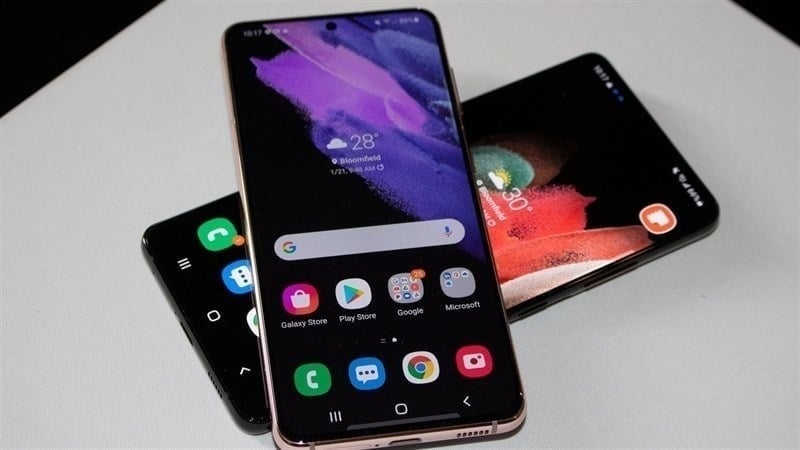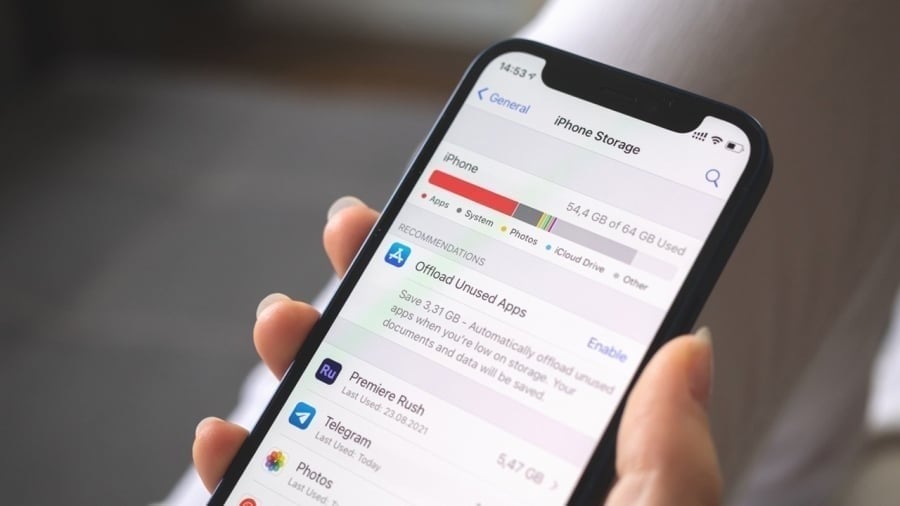1. Uninstall Unused Applications
Over time, your phone can become cluttered with dozens of installed applications that are rarely used. Having too many unnecessary apps not only takes up storage space but also slows down your device, making it prone to freezing and lagging.
Therefore, take some time to review your installed applications. Only keep the ones that are essential and frequently used. Uninstall the apps that you haven’t touched in a long time and don’t provide any value. This will free up space and make your phone’s interface neater and more organized.
Uninstalling unused apps also lightens the load on your operating system, improving speed and prolonging the lifespan of your device.

2. Clear Cache Memory
Cache memory temporarily stores data from applications to speed up app loading and content access. However, over time, these files can become overloaded and impact your device’s overall performance.
To ensure smooth operation, periodically clear your cache memory by following these steps:
Go to Settings on your phone.
Choose Storage or Device care, depending on your device model.
Look for options like Clear Cache, Optimize Device, or similar.
Confirm to let your device automatically scan and remove temporary, unnecessary data.
Note: Clearing cache does not delete your personal data or app logins, so you can do this without worry.
Delete Unnecessary Files
Files like images, videos, audio, and documents can take up a lot of space on your phone. To free up storage, delete unnecessary files or back them up to cloud services.
For example, on Android phones, the Download folder often accumulates downloaded files. Deleting unused files from this folder will lighten your phone’s memory and improve performance.

Delete Old Messages and Notifications
Old messages and notifications can also take up storage space. Delete unnecessary messages and adjust settings to limit long-term storage on your device.
Use a Memory Card
If your phone supports expandable storage, move data like images, videos, and documents to a memory card to free up internal storage.
Keep Software Up to Date
Updating your software ensures smooth operation by providing bug fixes and new features.
Utilize Cloud Services
If you don’t want to delete important files, use cloud services like Google Drive, OneDrive, or Dropbox to store them and save space on your phone.
Turn Off Unused Features
Disabling unused features like Wi-Fi, Bluetooth, GPS, and NFC when not in use reduces memory usage and improves device performance.
Use Third-Party Memory Management Software
In addition to built-in memory management tools, you can install third-party software to automatically clean and optimize your storage, keeping your phone stable and fast.
The Ultimate Guide to Speed Up Your Slow Phone: Clear Out Junk and Free Up Space
Introducing the ultimate guide to freeing up space on your phone! We’ll show you how to effortlessly delete unnecessary data and optimize your device’s storage. With our expert tips, you’ll be able to keep your phone running smoothly and efficiently, ensuring a seamless and enjoyable user experience. Get ready to bid farewell to storage woes and embrace a clutter-free digital life!





































